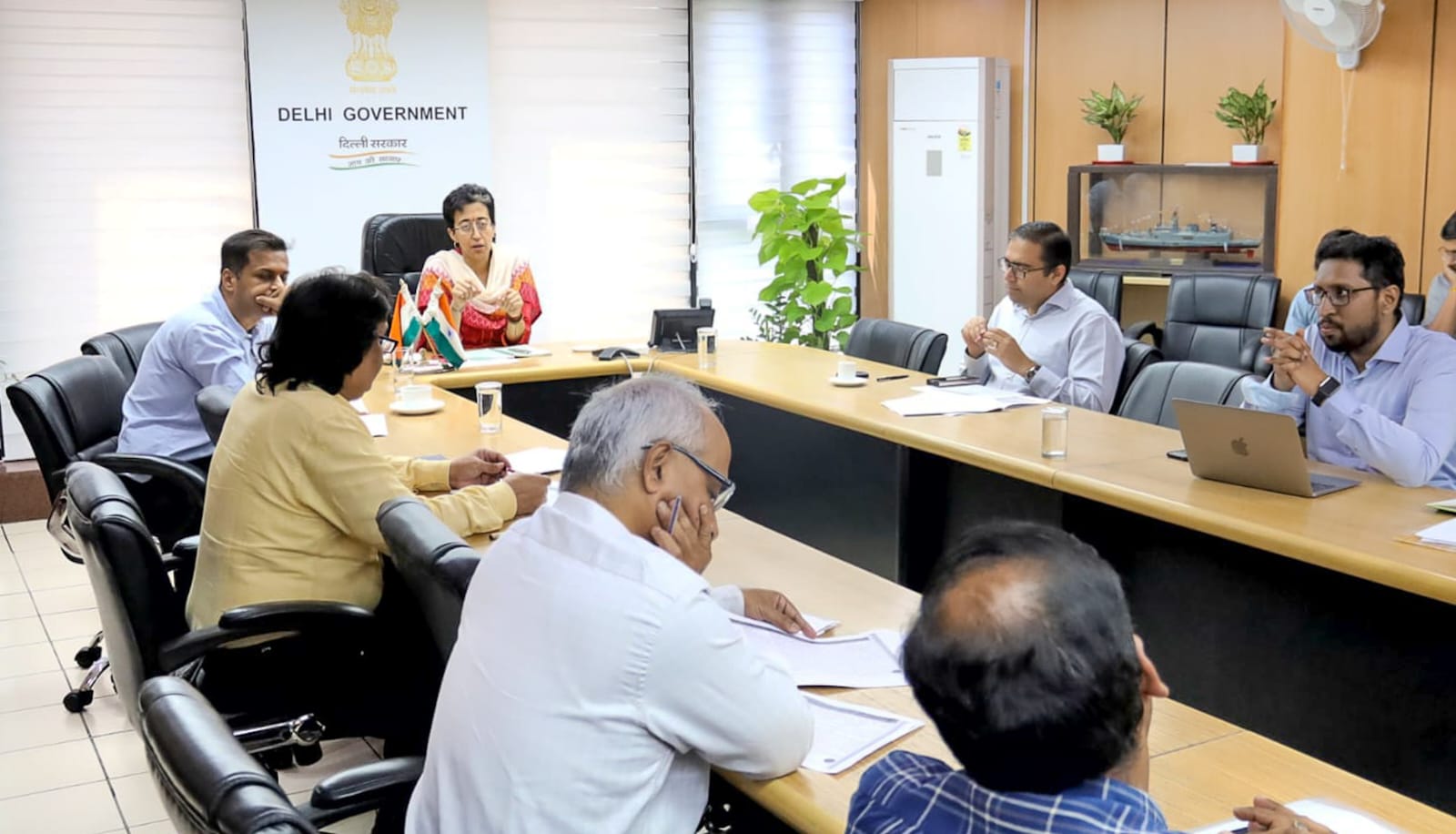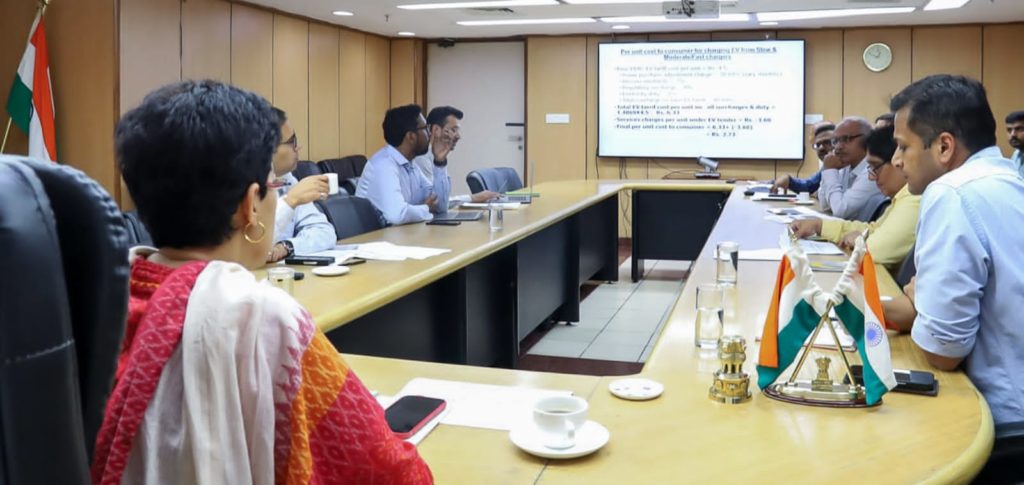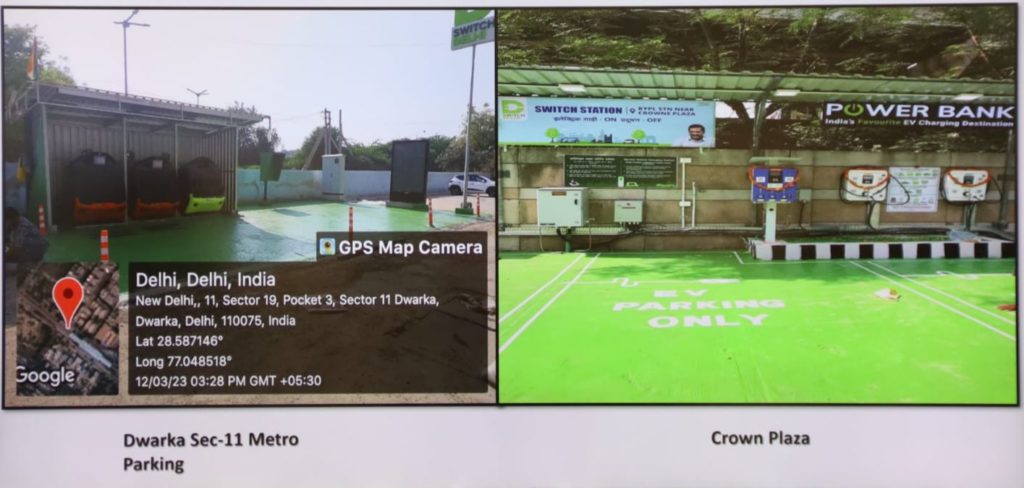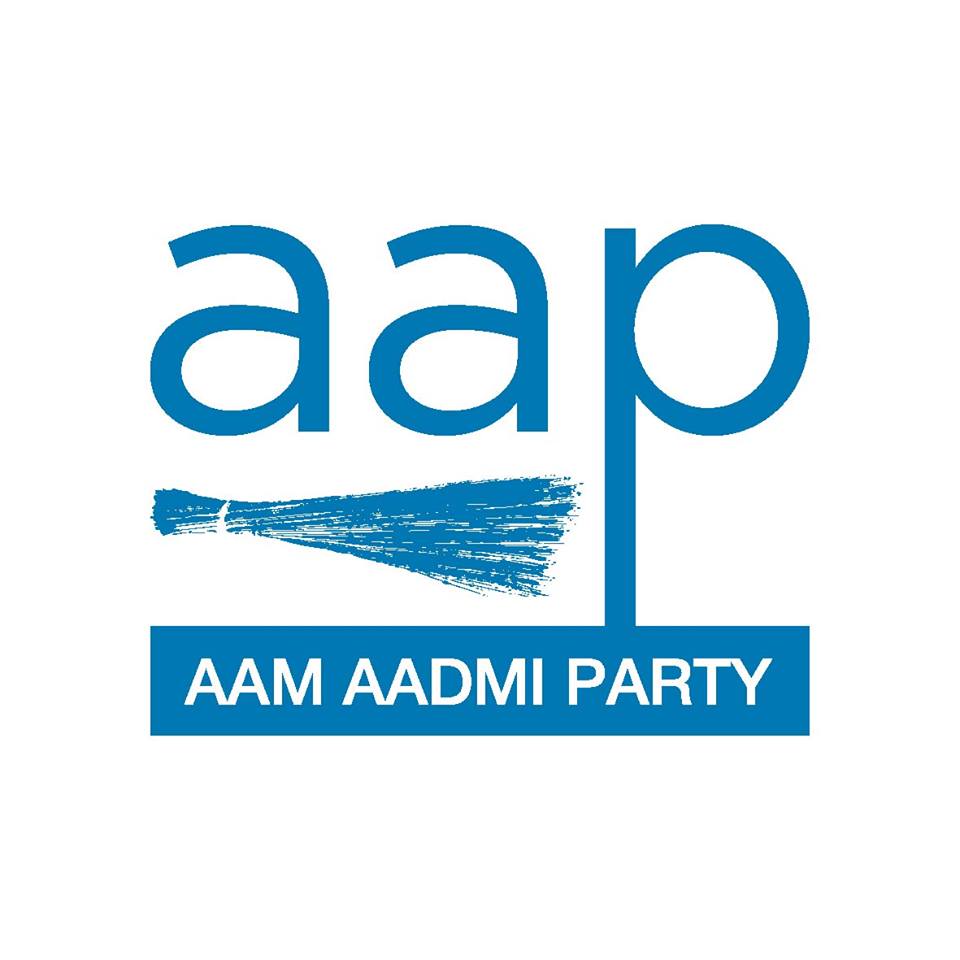
During the meeting, Power Minister Ms. Atishi directed the officials of the power department and DTL to proactively address the issues occurring in the installation of EV charging stations and ensure that 50 of them are ready by the end of April and 100 by the end of July. She directed the officials to expedite the work and complete it within the stipulated timelines.

She further said that the efforts of the Kejriwal government have made Delhi emerge as the electric vehicle (EV) capital of the country in recent years. In this direction, the government is establishing 100 EV charging stations across the city to strengthen Delhi’s EV charging infrastructure. With this project, there would be an excellent and convenient EV charging infrastructure in every part of the city, where the cost of charging per unit will be the lowest not only in the country but also in the world. People will have to spend less than Rs 3 per unit for EV charging.
“Under the leadership of Chief Minister Shri Arvind Kejriwal, Delhi is leading India’s EV revolution. As a result of the government’s efforts, 16.7% of the total vehicles sold in the capital in December 2022 were electric vehicles, which is the highest in the country. Now that the demand for electric vehicles is increasing so rapidly among people in Delhi, we are building 100 EV charging stations in the capital to ensure that people have enough charging stations available around them and do not face any problems related to charging,” said Power Minister Ms. Atishi.

It is to be noted that all these charging stations being set up by the Delhi government are based on a public-private partnership (PPP) model. Last year, the government had issued the country’s largest tender in this sector. It is worth noting that the cost of charging vehicles at these EV charging stations being set up by the Kejriwal government is the lowest in the world. The cost of charging per unit at these charging stations is even less than Rs 3 per unit.

